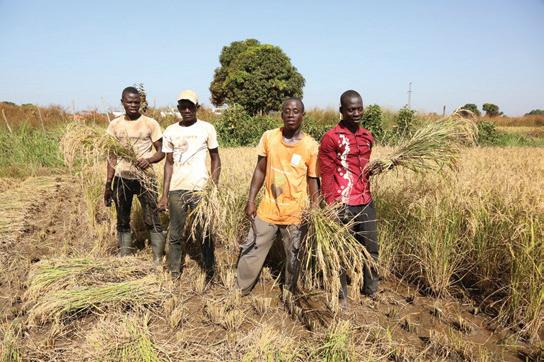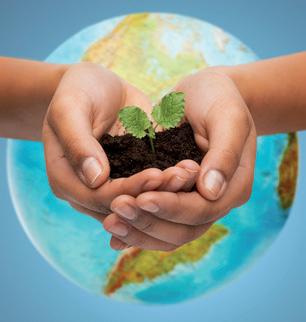
2 minute read
Small-scale farmers are vital to feeding West and Central Africa and transforming food systems
Amid increasing global hunger and poverty, devastating climate change impacts, the Covid-19 pandemic and the widespread effects of the war in Ukraine, small-scale producers can play a lead role in reducing hunger and poverty at country and regional levels. On 16 November 2022, the International Fund for Agricultural Development (IFAD) will convene policy-makers, development practitioners, rural producers and farmers organizations at its second Farmers Forum in GrandBassam, Côte d’Ivoire to explore opportunities to strengthen partnerships between them. Together, they can work jointly for sustainable transformation of food systems and food security.
The Farmers Forum will be a key component of discussions taking place during IFAD’s 12th Regional Implementation Workshop for IFAD-supported projects in West and Central Africa (WCA), from 17 to 18 November. High-ranking government officials from Côte d’Ivoire’s Ministries of Agriculture and of Finance will be in attendance. Deliberations will focus on access to finance, support to youth in agriculture, and climate change and value chain approaches leveraging IFAD’s long-standing partnership with farmers organizations.
Advertisement
“Farmers’ organizations are the essential link in agricultural and rural development because of their central role in the dynamics between agriculture, socio-economic, and political transformation of every country in the region,” said Sana Jatta, IFAD’s Regional Director for West and Central Africa Division on the eve of workshop. “It is critical that governments and development partners like IFAD pursue genuine partnerships with them in order to foster sustainable development in the rural and agricultural sectors.”

About 200 participants including 40 representatives of farmers’ organizations across the region are expected during the two events, including partners from IFAD-funded projects, representatives of governments, development agencies, the
European Union, UN agencies, the private sector, and members of civil society and farmers’ organizations. Over the three days, participants will work on developing strategies to strengthen country-level partnerships between farmer organizations and IFADsupported programmes in the region.
Finding more sustainable ways to cultivate rice crops
A team of researchers based in Europe used the Canadian Light Source to understand how to make fertilizer nutrients more available to rice plants.
Rice farmers depend on phosphorous fertilizers to maximize their yields of this major staple food, which helps nourish more than half of the world’s population. However, there is a finite supply of the nutrient available to be mined.
Using the ultrabright light of the Canadian Light Source at the University of Saskatchewan, German researchers examined soil samples from paddies in China in the hopes of learning how silicon can reduce the need for phosphorus-based fertilizers and make rice farming more sustainable.
Dr. Joerg Schaller and colleagues discovered that silicon, which is also known to play a key role in growing rice, can replace phosphorus in soil and mobilize it to be available for absorption by the plants that need it. Phosphorus binds to iron in soil, rendering it unavailable to plants.
“If all the building places are occupied with silicon, there is no space for phosphate to bind (in the soil). It means you need only half of the fertilizer,” said Schaller, who is with the Leibniz Centre for Agricultural Landscape Research (ZALF).
By taking multiple soil samples from rice paddies that have been used to cultivate rice for between 50 and 2,000








